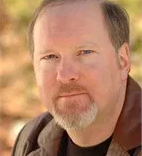The View from the Slushpile
When I was starting out, I submitted dozens and dozens of stories to various magazines and anthologies. At one point, I had 30 different manuscripts in the mail to different markets. I always wondered what went on in the slushpile when an editor would pick up the stack of envelopes from that day’s mail, and how my manuscript was treated among all those other clamoring submissions.
I’ve served as editor on seven anthologies, most of them specific-concept anthologies where I solicited particular authors for particular stories (Star Wars, War of the Worlds). I am also the editor of the next NEBULA AWARDS SHOWCASE, which is composed of reprints of the winners and nominees as well as some original essays.
However, I’ve just finished choosing the stories for my second BLOOD LITE anthology, which gave me a different perspective on editors looking at manuscripts from the slushpile. I was surprised to discover the things I cared about, the things that bothered me, the things that worked and what didn’t.
Because I’m editing BLOOD LITE on behalf of the Horror Writers Association, all of the submissions went to them first and then were forwarded to me. I received a regular stream of manuscripts, some from big names and established pros, most from people whose names I didn’t recognize. Since I decided to read them all anyway, I didn’t sort them or organize them, just picked up the first one, then the next, then the next.
I found that I really didn’t care about all the variations in manuscript formatting. As long as it was in a readable font and doublespaced and the pages numbered, it was fine. Since they were all in electronic files, I could reformat the manuscript in a jiffy if I wanted to.
Also, unless the stories were written by a major bestseller or award winner, I didn’t pay much attention to the author’s credits either. Didn’t really matter to me if they had a handful of stories published, a novel, or if they were complete newbies. Turns out that the writers’ level of professionalism became quickly apparent in the story itself. I didn’t care if the author included a cover letter or not; it was pretty obvious why they were sending me the story.
I went through all of the submissions over the course of a month or so. Some of them were slam-dunks and I immediately put them on the “Accept” pile. Others just didn’t work, either because of unpolished writing or so-so storytelling, and they were rejected. The biggest pile, though, was “Maybe” — the majority of stories that I liked, but either had plot holes, or needed work, or needed to be shortened, or had familiar ideas. The hardest part of the process came after I tallied up the word count of the stories I had definitely accepted, then tried to see how many Maybes I could fit with the remaining words I had left to fill (and how much I had left to pay them). I included the best ones, and had to return the rest.
As to what tips I can give an aspiring writer from the slushpile editor’s perspective, these things were big black marks against the submissions:
• Remember to put your e-mail address and word count on the front page. The reasons should be obvious. A lot of people didn’t do it.
• Don’t put a copyright notice on your manuscript. You don’t need it. It tells me you’re a novice. (Worst was one manuscript that stated “Copyright 2007” — you don’t want to tell the editor that this is a story you couldn’t sell for the past three years.)
• And most important of all, *send a submission that’s appropriate.* BLOOD LITE is an anthology of humorous horror stories. That’s not too complicated or obscure — send me a horror story that’s funny. Now, if you attempt to be funny but it fizzles, so it goes. I won’t buy the story, but I won’t hold a grudge until my dying breath. On the other hand, if you send me a story that in no conceivable way fits the guidelines, one that’s a straight horror story without any possible humor in it, and I read it all the way through wondering “What’s the punchline? There better be something funny coming up. Still waiting.” — that is enough to annoy me greatly. I have other submissions to read and other deadlines to meet, and this just wasted my time. Not cool, and not a way to ingratiate yourself to an editor.
KJA
David Farland, Eric Flint, Brandon Sanderson, Rebecca Moesta, and myself are presenting a full panel on how editors review manuscripts as part of our SuperStars Writing Seminar in Pasadena this March—www.superstarswritingseminars.com—along with other topics of interest to serious writers.

